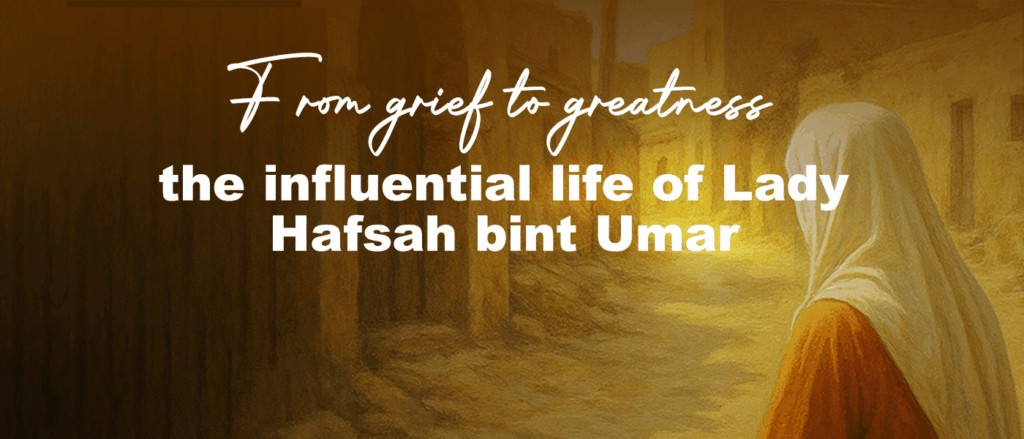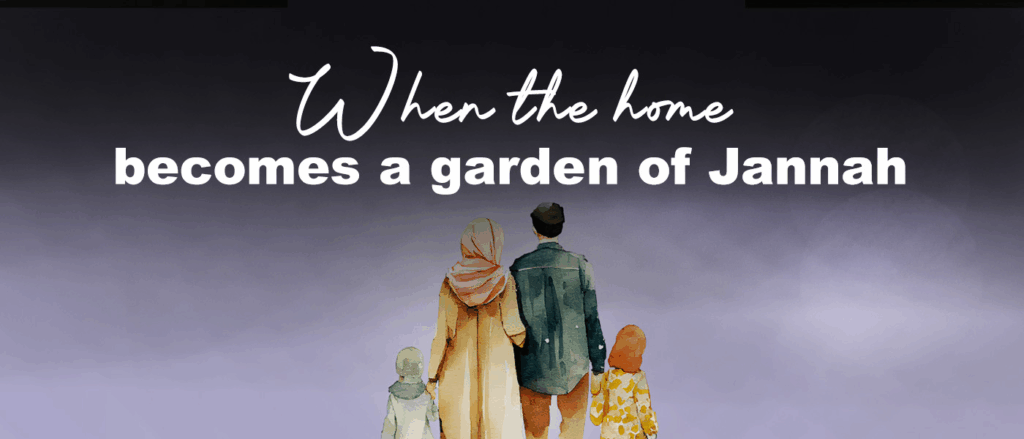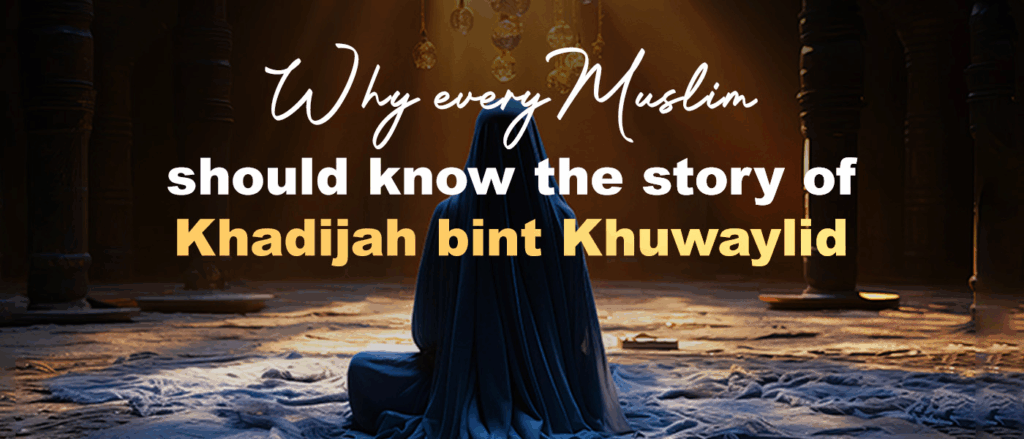The Prophet Muhammad (SAW)’s final pilgrimage

In the final year of his noble life, the Messenger of Allah (SWT) embarked on a journey that would not only be his last pilgrimage but also a culminating chapter of his prophetic mission. Known as Hijjat al-Wada, the Farewell Pilgrimage, this event was an important moment of spiritual, communal, and legislative significance. It marked the perfection of Islam as a complete way of life and offered one of the most critical public addresses in Islamic history known as the Farewell Sermon. This blog article traces the Prophet (SAW)’s departure for the last pilgrimage, his teachings during it, and the enduring significance of the journey. In the year 10 AH, the Prophet (SAW) announced his intention to perform Hajj. News spread rapidly across the Arabian Peninsula. Tens of thousands of Muslims, eager to join him, flocked to Madinah to accompany the Messenger of Allah (SWT). Ibn Umar narrates that the Prophet (SAW) initiated both Umrah and Hajj together, assuming ihram from Dhul-Hulayfah and driving this hady (sacrificed animals) along with him. He instructed those who did not bring sacrificial animals to exit their ihram after performing Umrah, then renew it for Hajj later—this was the practice of Tamattu Hajj. The Prophet (SAW)’s farewell to his people, and to the world had begun. At the plains of Arafat, on the ninth of Dhul Hijjah, the Prophet (SAW) delivered his final public sermon. Ibn Abbas and others witnessed the Messenger (SAW) addressing a massive assembly from atop his camel, Qaswa. In this sermon, the Prophet (SAW) emphasized the following major points that all Muslims in this Ummah must pay close attention to: The sanctity of life, wealth, and honor. Equality of all Muslims regardless of ethnic origin. The importance of transmitting the message to future generations. An emphatic warning against returning to pre-Islamic ignorance and tribal vengeance. The rights of women. The unity of the Ummah. In his sermon he declared, “Verily! Your blood, property and honor are sacred to one another (i.e. Muslims) like the sanctity of this day of yours, in this month of yours and in this city of yours. It is incumbent upon those who are present to inform those who are absent because those who are absent might comprehend (what I have said) better than the present audience.” (Sahih Bukhari) At that moment, the Prophet (SAW) had just received a revelation from Allah (SWT) which he recited out loud to the people to conclude his final words. That verse was from Surah Al-Ma’idah when Allah (SWT) said, “Today I have perfected your faith for you, completed My favour upon you, and chosen Islam as your way. But whoever is compelled by extreme hunger—not intending to sin—then surely Allah is All-Forgiving, Most Merciful.” (The Clear Quran®, 5:3) Many companions wept upon hearing this verse as they recognized that this was foreshadowing that the prophet mission had neared its end. Historical records indicate that over 100,000 companions had accompanied the Prophet (SAW) on his final journey. The Farewell Pilgrimage was a testament to the mercy, clarity, and guidance he brought to humanity. On that sacred journey, he delivered his final instructions, safeguarded the rights of the vulnerable, dismantled the vestiges of jaahiliyah, and entrusted the Muslim Ummah with a complete and perfected religion. Standing among a sea of believers on the plain of Arafah, the Prophet (SAW) embodied his message through and through. His call to justice, equality, and devotion to Allah (SWT) continues to echo through the centuries, calling each believer to uphold the trust of faith he left behind. In every corner of the globe where the talbiyah is recited and the rites of hajj are observed, the legacy of that final journey lives on. May we honor that legacy with sincerity, uphold its principles with steadfastness, and meet him at the hawd with hearts faithful to the message he conveyed so completely.
From grief to greatness—the influential life of Lady Hafsah bint Umar

When we speak of legacies, we often speak of men who led armies or gave speeches that shook empires. But in the home of the Prophet (SAW) lived a woman whose legacy wasn’t loud, it was preserved between the lines of The Quran, in the pages that she guarded, and in the heart she trained in submission. Her name was Lady Hafsah bint Umar, daughter of Umar ibn al-Khattab – dubbed al-Faruq by the Prophet (SAW) for his sound judgment. As the wife of the Prophet (SAW), Lady Hafsah bint Umar was one of few people entrusted with the mushaf of The Quran. Her story is one of pain, patience, strength, and divine selection. Lady Hafsah bint Umar married Khunays ibn Hudhafah, one of the early Muslims who made Hijrah to both Abyssinia and Madinah. He was a sincere and devoted believer but, shortly after the Battle of Badr, Khunays became ill and passed away. Hafsah became a widow at just 20-years-old. Her father, Umar ibn al-Khattab, deeply saddened by her grief, began seeking a righteous husband for her. He approached both Uthman ibn Affan and Abu Bakr al-Siddiq, but both declined. Umar ibn al-Khattab was heartbroken and confused but, a matter of days later, the Prophet (SAW) asked for Hafsah’s hand in marriage for himself. Later, Abu Bakr al-Siddiq admitted, “Nothing prevented me from giving you an answer when you made the offer to me, except the fact that I had heard the Messenger of Allah speak of her, and I did not want to disclose the secret of the Messenger of Allah.” (Sahih Bukhari 4005) It was Allah (SWT) who chose Lady Hafsah bint Umar to be among the Ummuhat al-Mu’minin, the Mothers of the Believers. The Prophet (SAW) married her in the third year after Hijrah. Despite being known for her strong personality, Lady Hafsah bint Umar was deeply committed to worship. She fasted often and prayed in the night; the Prophet (SAW) recognized her devotion. In fact, in Sunan Abu Dawood, Ibn Majah, and Al-Mustadark there is a famous hadith that is recorded where the Prophet (SAW) once considered divorcing her. But Jibraeel (AS) then descended, commanding him not to. SubhanAllah, this shows us that, because of her sincerity, not her perfection, Allah (SWT) granted her a place in Jannah beside the Prophet (SAW). She lived in the modest household of the Prophet (SAW), side-by-side with remarkable women like Lady Ayesha bint Abu Bakr, Lady Umm Salamah, and Lady Zaynab bint Jashsh. Each of these noble ladies were chosen by Allah (SWT) and had their own strengths. One of the most overlooked yet deeply important parts of Lady Hafsah bint Umar’s legacy came after the Prophet (SAW)’s death. During the caliphate of Abu Bakr as-Siddiq, many memorizers of The Quran were martyred in the Battle of Yamamah. Fearing the loss of The Quran, Abu Bakr as-Siddiq commissioned Zayd ibn Thabit to gather the verses into a compiled manuscript. That first official written mushaf, compiled under Abu Bakr as-Siddiq and maintained under Umar ibn al-Khattab was then entrusted to Lady Hafsah bint Umar, and she kept this in her possession for years. Later, during the reign of Uthman ibn Affan, that same manuscript was used as the primary reference for the standardized copies of The Quran that were sent across the Ummah. Imagine this: The Quran that you read today, from Madinah to the United States, from Nigeria to Australia, this all connects back to a woman who once held those sacred pages in her home. Allah (SWT) says in Surah Al-Ma’idah, “O Messenger! Convey everything revealed to you from your Lord. If you do not, then you have not delivered His message. Allah will certainly protect you from the people. Indeed, Allah does not guide the people who disbelieve.” (The Clear Quran®, 5:67) Indeed, Lady Hafsah bint Umar is one of the people under Allah (SWT)’s divine protection. Lady Hafsah bint Umar lived through the caliphate of her father Umar ibn al-Khattab, Abu Bakr as-Siddiq, Uthman ibn Affan, and Ali ibn Abu Talib. She passed away around 45 AH, during the reign of Muawiyah ibn Abu Sufyan, at around the age of 60. She was buried in Jannat ul-Baqee, the resting place of many of the Prophet (SAW)’s companions and family members. Lady Hafsah bint Umar was a woman whose private strength and spiritual discipline quietly shaped the foundation of the Muslim Ummah. Her life was marked by trials such as widowhood, loss, and moments of personal difficulty. But her response to each of these trials was marked by patience, worship, and steadfast faith. She did not lead armies or govern cities, but what she carried was more enduring than either—the words of Allah (SWT). We live in a time when influence is measured by visibility, yet Lady Hafsah bint Umar’s influence came through responsibility, not attention. She reminds us that a meaningful legacy doesn’t always require a public platform, it requires sincerity, trust in Allah (SWT), and a commitment to serving something greater than oneself. In remembering her, we are not just recalling a name from Islamic history. We are acknowledging a woman whose decisions, character, and presence in the Prophet (SAW)’s life became part of the infrastructure of our deen. Her worship earned her a place in Paradise alongside the Messenger (SAW), and her care for The Quran helped ensure we still recite the same words today. To reflect on Lady Hafsah bint Umar’s life is to be reminded that every believer, man or woman, has a place in preserving this religion (and yes, female role models can be role models for men too). Not everyone is called to be on a battlefield or behind a microphone. Some are called to protect, preserve, and to pray at night while others sleep, as guardians of what truly matters. That, too, is greatness, and that is the legacy of Lady Hafsah bint Umar.
The Islamic treaty that changed everything

Sometimes in life, things don’t go the way we hope even when we’re doing the right thing. The Treaty of Hudaybiyyah is one of those moments in Islamic history that teaches us how Allah (SWT)’s plan can unfold in ways we don’t understand at first, but later realize were full of wisdom and mercy. This wasn’t a typical military battle or a dramatic request. It was a moment of restraint, patience, and trust in Allah (SWT). And yet, it turned out to be one of the most important turning points in the seerah of the Prophet (SAW). In this blog article, let’s walk through what happened, what the Prophet (SAW) and the Sahabah felt, and how we can draw lessons from it today. In the sixth year after Hijrah, the Prophet (SAW) had a dream where he saw himself and his companions entering the Sacred Mosque in Makkah peacefully, performing Umrah. As The Quran confirms, “Indeed, Allah will fulfill His Messenger’s vision in all truth: Allah willing, you will surely enter the Sacred Mosque, in security—some with heads shaved and others with hair shortened—without fear. He knew what you did not know, so He first granted you the triumph at hand.” (The Clear Quran®, 48:27) With that dream in mind, the Prophet (SAW) set out with about 1,400 companions, dressed in ihram, clearly showing they were not armed for war. Their only intention was worship. But when they reached the area of Hudaybiyyah, just outside of Makkah, the Quraysh refused to let them enter. The situation was tense. The Muslims had come in peace, but they were being treated like enemies. The Prophet (SAW) tried to avoid conflict and sent Uthman ibn Affan to negotiate. When he didn’t return quickly, rumors spread that he’d been killed. In response, the Prophet (SAW) took a public pledge of loyalty from the companions, under a tree known as the Bay’ah al-Ridwan. Allah (SWT) praised this moment in The Quran when He said, “Indeed, Allah was pleased with the believers when they pledged allegiance to you, O Prophet, under the tree. He knew what was in their hearts. So He sent down serenity upon them and rewarded them with a victory at hand […].” (The Clear Quran®, 48:18) Eventually, Uthman ibn Affan returned safely, and negotiations resumed. That’s when the Prophet (SAW) agreed to terms that left many of the Sahabah confused and even upset. Here’s what the Muslims agreed to: They wouldn’t perform Umrah that year but would return the next year for a three-day visit. There would be no fighting between Quraysh and the Muslims for 10 years. If anyone from Quraysh came to Madinah as a Muslim, they’d be sent back. But if someone left Islam and returned to Quraysh, the Muslims wouldn’t be allowed to stop them. Both sides could make alliances freely. To many companions, this felt like a huge compromise. Umar ibn al-Khattab said, “Aren’t we on the truth and they on falsehood?” The Prophet (SAW) answered calmly, “Yes, but I am the Messenger of Allah. I do not disobey Him, and He will help me.” (Sahih Bukhari) This shows the Prophet’s deep trust in Allah (SWT)’s plan, even when others struggled to see this wisdom. While the companions were still processing what had happened, Allah (SWT) revealed, “Indeed, We have granted you a clear triumph, O Prophet […].” (The Clear Quran®, 48:1) Many may ask, how could this be a victory? But Allah (SWT) was teaching the Muslims, and all of us, that victory doesn’t always look like triumph on the battlefield. Sometimes, victory comes in the form of restraint, wisdom, and planting seeds for long-term change. Over the next two years, Islam spread faster than it ever had before. The peace gave people space to think, listen, and accept the truth. More people accepted Islam during this time than in all the years before. Also: Quraysh now acknowledged the Muslims as a legitimate state by signing a treaty with them. When Quraysh broke the treaty two years later, the Muslims had every right to respond and that led to the peaceful conquest of Makkah. The Muslims showed the world they could be calm, rational, and peaceful even when they had the strength to fight. So, what are some important events we can take away from this historic Islamic event? Not every delay is a denial. Just because something doesn’t happen right away doesn’t mean it’s not coming. Allah (SWT)’s timing is always perfect. Wisdom must always dominate emotion. The Prophet (SAW) didn’t make decisions based on how people felt in the moment. He looked at the bigger picture and trusted Allah (SWT). Peace is a form of strength. Being patient and strategic doesn’t mean being weak. Sometimes, it’s the highest form of power. The truth doesn’t always win loudly. Sometimes the greatest victories are quiet ones (firm decisions made with tawakkul, even when the world doesn’t understand them). The Treaty of Hudaybiyyah reminds us that true success lies in following Allah (SWT)’s guidance, even when it’s hard, and even when it may not make sense to us. What looked like a setback was actually a gateway to one of the greatest triumphs in Islamic history. We ask Allah (SWT) to grant us the patience of the Prophet (SAW), the sincerity of the Sahabah, and the ability to see beyond the surface in our own lives. Oh Allah (SWT), make us among those who are patient when tested, obedient when commanded, and trusting when You promise.
Ayesha bint Abu Bakr — the woman who taught a nation

Among the most influential women in Islamic history is Ayesha bint Abu Bakr, the beloved wife of the Prophet Muhammad (SAW) and daughter of Umm Roman Zainab and Abu Bakr al-Siddiq, the first caliph of Islam. Her life stands as a testimony to the deep involvement of women in Islamic scholarship, piety, and leadership. Ayesha bint Abu Bakr was born in Makkah around 613 CE, into the noble tribe of Quraysh. Her father, Abu Bakr, was among the earliest and closest companions of the Prophet (SAW), and a man of immense integrity and piety. She was betrothed to the Prophet Muhammad (SAW) at a young age and entered into marriage with him in Madinah. Per her narration, Allah’s Messenger (SAW) said (to me), “You were shown to me twice in (my) dream. Behold, a man (Angel) was carrying you in a silken piece of cloth and said to me, ‘She is your wife, so uncover her,’ and behold, it was you. I would then say (to myself), ‘If this is from Allah, then it must happen.’” (Bukhari 7011) Their relationship was marked by love, mutual respect, and a shared commitment to the message of Islam. Despite facing slander and accusation during the infamous incident of al-nafk, where she was falsely accused of wrongdoing, Allah (SWT) revealed verses in Surah An-Nur saying, “Indeed, those who came up with that outrageous slander are a group of you. Do not think this is bad for you. Rather, it is good for you. They will be punished, each according to their share of the sin. As for their mastermind, he will suffer a tremendous punishment.” (The Clear Quran®, 24:11) Her steadfastness during this trial reflected her immense trust in Allah (SWT) and emotional strength. Ayesha bint Abu Bakr was unique in many ways. She was the only wife of the Prophet (SAW) who had never been previously married, she was a born Muslim and daughter of two of the Prophet (SAW)’s most trusted companions, and she was the only wife in whose bed the Prophet (SAW) received revelation. But what distinguished Ayesha bint Abu Bakr above many others was her ilm, or knowledge. She was a scholar of the highest caliber, having learned eagerly from the Prophet (SAW). She lived with the Prophet (SAW) for nine years until his death, which occurred in their home and in her arms – where he chose to take his last breath. “Amr bin Al-‘As said to the Messenger of Allah (SAW), ‘Who is the most beloved of the people to you?’ He (SAW) said, ‘Ayesha.’ He asked, ‘From the men?’ He (SAW) said, ‘Her father.’” (Tirmidhi 3886) After the Prophet (SAW)’s passing, Ayesha bint Abu Bakr became a central authority on hadith, jurisprudence, and Quranic interpretation. The great scholar al-Zuhri said, “If the knowledge of Ayesha were to be gathered and compared to the knowledge of all the other wives of the Prophet and all the other women, her knowledge would be greater.” Her home in Madinah became a place of learning for the companions and succeeding generations. She answered legal questions, gave fatwas, and corrected misunderstandings about religion, even challenging senior companions when needed. Ayesha bint Abu Bakr also played a role in the political events following the death of the Prophet (SAW). During the caliphates of Umar ibn al-Khattab, Uthman ibn Affan and, later, Ali ibn Abu Talib, she was involved in matters concerning justice and leadership. Her strong personality made her a leader in knowledge, society, politics, and warfare. Though she later regretted her role in conflict, she lived to restore her place as the most esteemed woman of her era. Ayesha bint Abu Bakr passed away in Madinah in the year 678 CE (58 AH) and was buried in Jannat ul-Baqee near other members of the Prophet (SAW)’s household. Her legacy continues through the volumes of hadith she narrated, her interpretations of The Quran, and her role as a teacher to the generation of scholars who followed. Her life reminds us that Islamic scholarship and piety are not limited by gender, and that women can be powerful conveyors of knowledge and faith. After Khadijah bint Khuwaylid and Fatimah Az-Zahra, Ayesha bint Abu Bakr is regarded as the best woman in Islam and remains a role model for Muslims today. Her courage, knowledge, and devotion continue to inspire scholars and seekers of truth. She exemplified how faith, intellect, and strength can come together to leave a lasting legacy in the path of Allah (SWT). To learn more about the life of Ayesha bint Abu Bakr, consider checking out the below books: The Wives of the Prophet Muhammad — Ahmad Thompson Aisha — The Wife, the Companion, the Scholar — Resit Haylamaz (also available in Spanish) Kitab At-Tabaqat Al-Kabir Volume VIII: The Women of Madina — Aisha Bewley
When the home becomes a garden of Jannah

In every language and culture, there is a word that melts the hardest of hearts and that is family. It evokes warmth, safety, and a sense of belonging. But, in Islam, we are taught that family is more than a small village of comfort, it is a sacred trust, a divine covenant, and a mirror of our relationship with Allah (SWT). Our homes are not just buildings, they are also the first madrasah, the first masjid and, for many children, the first glimpse of Allah (SWT)’s mercy on earth. As we mark International Day of Families, we pause to remind ourselves of Allah (SWT)’s timeless guidance about what it means to live, love, and lead as a family. The Quran introduces us to some of the most powerful human stories through families. The story of Prophet Nuh (AS) and his son. Of Prophet Ibrahim (AS) and his father, and then later his son. Of Musa (AS), adopted into Pharaoh’s palace yet nurtured by his mother under divine protection. Even the blessed arrival of Prophet Isa (AS) is wrapped in the dignity and pain of a mother raising her son alone in the face of a judgmental society. The family is the crucible of faith. It is where love is tested, forgiveness is practiced, and character is formed. And, of course, the greatest family in human history is the beloved family of our Prophet Muhammad (SAW). His family is the blueprint for how we should walk through the doors of our homes. Our Prophet (SAW) was the world’s most compassionate husband, the most attentive father, and the most tender-hearted grandfather. He would kneel beside a crying child; he would mend his own clothes; he would prolong his sujood if his grandchildren would climb on his back and, in general, he would never rush a moment of joy for them. This is the father who would stand when his daughter Fatima bint Muhammad would enter a room, kiss her on her forehead, call her the “joy of the heart,” and allow her to sit where he was sitting. In a society that often neglects emotions behind a facade of strength, the Prophet (SAW) taught us that true manhood and leadership is rooted in gentleness and emotional intelligence. In a hadith, the Prophet (SAW) has said, “The best of you are those who are best to their families, and I am the best among you to my family.” (Sunan ibn Majah, 1977) How we treat our families is the most accurate measure of our adherence to and understanding of Islam. However, many of us also come from homes where the environment is not exactly healthy and Islamic. Some carry silent scars in their hearts. They come from environments where yelling is the norm, or perhaps they didn’t have a fatherly figure or affection. But Islam doesn’t demand perfection. It asks us for sincerity, patience, and growth. Allah (SWT) says to us in The Quran, “And We have commanded people to honor their parents. Their mothers bore them through hardship upon hardship, and their weaning takes two years. So be grateful to Me and your parents. To Me is the final return.” (The Clear Quran®, 31:14) Above all else, to our young Muslim readers, we know the world is noisy, and sometimes your parents may not understand your journey. But, one day, you will wish you could rewind life and hear their voices again. Allah (SWT) has placed barakah in their dua. There is a special light in obeying them, even when it’s hard. And remember, loving your family doesn’t mean you always agree. It means you stay soft when the world tries to harden you. It means you choose kindness over ego. And to the parents—yes, your children may be your legacy, but they are also our test, our dua and possibly, our only ticket to Paradise. After all, the Prophet (SAW) has said in another hadith, “Every one of you is a shepherd and every one of you is responsible for his flock.” (Sahih Bukhari) While we must raise our children to be academically excellent, we must also ensure they are lovers of Allah (SWT), reciters of The Quran, defenders of the weak, and humble in the night when others sleep. Achievement of these characteristics starts with love. So, how do we strengthen the family? Here are some tips we can advise: Pray together (even one jama’ah a day at home can soften hearts). Eat together (the Prophet (SAW) advised us to eat together and invoke Allah (SWT)’s name; it brings barakah). Speak well (the tone we use at home is also a form of dawah). Forgive quickly (the one who forgives most easily is the most free). When mistakes happen, and they certainly will, repent together. Make your home a place where tawbah is natural and dua flows like water. If your family members are still alive and with you, do something extra special for them when you see them. Visit your parents if they are far away from you. Kiss your mother’s hand and gift her with something that she will love. Speak to your siblings if you haven’t spoken to them in a while. Hug your sister, especially if she’s having a rough day. Spend some time with your grandmother. Indeed, blessed are those believers whose elderly are still alive and with them. Play with your children, they enjoy it when you spend time with them. Because, one day, these people will be gone. And you will wish for one more chance to say, “I love you for the sake of Allah (SWT).” And, if your family is broken, then rebuild it with ihsan. Begin the healing. Begin with dua. Because healing is also an act of worship when done for the sake of Allah (SWT).
Lady Sawdah bint Zam’ah: The steadfast wife of the Prophet (SAW)

When we speak of the Mother of the Believers, names like Ayesha, Khadijah, and Fatima often dominate our memory. But among the early and most faithful supporters of the Prophet (SAW) was a woman who rarely sought the spotlight, yet stood firm when others fled. Her name is Sawdah bint Zam’ah. Her story is not one of public debate or scholarly rulings. Hers is a story of loyalty, humility, and the quiet grace of sacrifice. Lady Sawdah bint Zam’ah was among the earliest women to accept Islam. Alongside her husband, as-Sakran bin Amr, she embraced the message of tawheed in Makkah at a time when doing so was socially dangerous and politically costly. When the persecution of Muslims intensified, Lady Sawdah bint Zam’ah and her husband were among those who migrated to Abyssinia, seeking refuge under the Christian King al-Najashi. This marked her as one of the first muhajirin, early migrants for the sake of faith. Tragically, her husband passed away shortly after their return to Makkah, leaving her widowed at a time when widowhood for Muslim women was socially vulnerable and economically difficult. After the passing of Lady Khadijah bint Khuwaylid, the Prophet (SAW) endured a period of deep grief. He had lost not only his wife, but also his confidante and strongest supporter. The home was quiet. The burden of revelation was heavy. The children, especially his beloved daughter Fatima bint Muhammad, needed maternal care. It was during this period that the Prophet (SAW) married Lady Sawdah bint Zam’ah. According to a hadith in Sahih Al-Bukhari and other sources, it was Khawlah bint Hakim who suggested her as a suitable match, and the Prophet (SAW) accepted. Her age, maturity, and calm presence made her a stabilizing figure in the household. She became the second wife of the Prophet (SAW) after Lady Khadijah bint Khuwaylid, and the first after the Revelation had begun. Lady Sawdah bint Zam’ah was known for her simplicity and sense of humor. She was tall, dark-skinned, and older than most of the Prophet (SAW)’s wives, yet she held a unique space in the Prophetic household. She once said jokingly to the Prophet (SAW), “I prayed behind you and prolonged the bowing so long that I feared a nosebleed!” The Prophet (SAW) smiled at her words, and this was a testament to the comfort and ease she brought him. However, her most striking trait was her selflessness. Lady Sawdah bint Zam’ah did not narrate many ahadith, nor did she engage in political or legal matters after the Prophet (SAW)’s death. But her presence during critical moments, including the Hijrah to Madinah, the settling of the early Muslim community, and the formation of the Prophetic household earned her a place of honor. She lived in the caliphate of Umar ibn al-Khattab, content, pious, and quiet. Her avoidance of public life was not a flaw, it was a reflection of a heart that had already found its closeness to Allah (SWT). From Lady Sawdah bint Zam’ah, we learn: Loyalty is not always loud: She stood by the Prophet (SAW) when he needed companionship the most, not just in times of victory, but also in times of sorrow. Age is not a barrier to contribution: She embraced Islam early, migrated for it, and married the Prophet (SAW) later in life, still leaving a legacy. Selflessness can be an act of worship: Giving up her time with the Prophet (SAW) for the sake of harmony shows her true spiritual maturity. There is value in quiet faith: Not every legacy is built in the public sphere. Some are built in kitchens, homes, and silent nights of remembrance. Lady Sawdah bint Zam’ah may not have left behind volumes of hadith, military contributions, or legal rulings. But she left something quieter, and perhaps more enduring, and that is an example of steadfast faith, sincere service, and selfless love for the Prophet (SAW). In honoring her, we honor a model of spiritual integrity rarely seen. One that asks for nothing, but gives everything. We pray to Allah (SWT) that He may be pleased with our mother Lady Sawdah bint Zam’ah, reward her for her support of Islam and the Prophet Muhammad (SAW), and raise her rank in the Gardens of Bliss, Ameen.
Why every Muslim should know the story of Khadijah bint Khuwaylid

When we speak of the beginning of Islam, our minds often go to the cave of Hira, the trembling voice of the Prophet (SAW), the weight of revelation, and the descent of Jibraeel (AS). But just as sacred is the home he rushed to, the arms that comforted him, and the heart that believed in him before anyone else. That heart belonged to Khadijah bint Khuwaylid. Long before Islam was revealed, Khadijah bint Khuwaylid was known as Tahirah or, “the pure one.” In a time when women had few rights and little voice, she commanded respect in the marketplace of Makkah. She was a business magnate, a wise leader, and someone whose reputation reached far beyond her tribe. But her strength was never loud. She didn’t need to dominate a room. Her quiet dignity, honesty, and compassion gave her more influence than wealth ever could. And then, she met Muhammad ibn Abdullah. A man whose integrity spoke louder than his words. When she entrusted him with her caravan, she was so impressed by his character that she did something few women dared to do in her society, and that was to propose marriage to a man, as a woman. 15 years into their marriage, the Prophet (SAW) one day came to her and he looked visibly shaken. He had just received revelation for the first time. The mountain, the angel, the message, it was all overwhelming for him! But it was Khadijah bint Khuwaylid who held him close and reassured him, “By Allah, He will never disgrace you. You uphold ties of kinship, you carry the burden of the weak, you support the poor, you honor the guest, and you assist those who are afflicted with calamities.” (Sahih al-Bukhari) She did not demand evidence, she didn’t question his sanity, she simply believed in him and stood beside him, thereby setting the example of how important it is to support your spouse through all trials and tribulations. That moment marked the birth of a faith, and she was the very first believer. The very first Muslim. The first to submit not just with words, but with her entire being. However, her belief came at a cost. She gave away her fortune to protect the early Muslim community. She endured the brutal boycott with the Prophet (SAW) in the valley of Abu Talib, his uncle, where food and water were scarce. She patiently bore the whispers, the mockery, and the threats. But she never wavered from her faith. Not once. Her wealth, her status, and her comfort, all of it became fuel for a cause greater than herself. In the 10th year of prophethood, Khadijah bint Khuwaylid returned to her Lord. The Prophet (SAW) was devastated. That year came to be known as Aam al-Huzn, The Year of Sorrow. He had lost his wife, his best friend, and his anchor. Years after, the Prophet (SAW) still never forgot her. He would continue to send food to her friends, speak of her with tears in his eyes, and turn away from those who criticized her. His love for her wasn’t bound by life or death. In a famous hadith, one day, the wife of the Prophet (SAW) Ayesha bint Abu Bakr asked him if Khadijah was the only woman worthy of his love. The Prophet (SAW) then responded, “She believed in me when no one else did; she accepted Islam when people rejected me; and she helped and comforted me when there was no one else to lend me a helping hand.” Perhaps the most remarkable testament to her rank is the one sent by Allah (SWT) Himself. One day, the angel Jibraeel (as) came to the Prophet (SAW) and said, “Give Khadijah greetings of peace from her Lord and from me. And give her glad tidings of a house in Paradise made of pearls, where there will be no noise or fatigue.” (Sahih al-Bukhari) No other woman in Islamic history has received such an honor. Imagine how great a personality you must be to receive salaam from the Lord of the Universe Himself! While Khadijah bint Khuwaylid left behind no lengthy sermons, public addresses, and books, her actions were enough to write volumes within the Islamic faith. She taught us that belief isn’t just reciting the Shahada, it also requires a great deal of sacrifice when needed, and immense generosity. She teaches us that love isn’t just words, but it must also be followed up with actions. And above all else, effective leadership doesn’t always have to be loud, but it can be rooted in silent courage as well. We live in a world that often measures success by visibility, and she reminds us that some of the most powerful changes can also happen in the background where only Allah (SWT) can see. It can happen in the home, in the heart, and in the silent sacrifices that no one sees but Allah (SWT). For our Muslim Ummah, and our youth specifically, here are some major takeaways you can implement within your life to live according to the values of Khadijah bint Khuwaylid: Choose a spouse for his integrity, and not just his status. In a world that chases charm, be the one who chooses someone who is on the path of haq. Invest your money towards your faith even if it’s a small amount. Don’t just make as much money as possible and then spend it on luxuries rather, invest it in something that can benefit your akhirah, the akhirah of your parents, and the akhirah of your deceased loved ones. Have faith even when it feels like the world is against you, and even if you are alone. Try to be a calm and supportive presence for someone going through calamities. Always put Allah (SWT)’s pleasure and His opinion at the forefront of all of your decision making. Every time you feel small for doing unseen work, remember her. Every time you wonder if your quiet efforts have meaning,
Why are the first 10 days of Dhul Hijjah the best in the year?

All praise is due to Allah (SWT), the Lord of the Worlds, who created time and made some periods more virtuous than others. In His divine wisdom, He bestows sacredness upon moments that offer believers increased opportunities to draw closer to Him. Among these blessed times are the first 10 days of Dhul Hijjah, and these days are imbued with immense spiritual weight, mercy, and divine favor. The Prophet Muhammad (SAW) has said, “There are no days in which righteous deeds are more beloved to Allah than these 10 days.” The companions responded and said, “Not even jihad for the sake of Allah?” The Prophet (SAW) then replied, “Not even jihad for the sake of Allah, except for a man who went out with his life and wealth and returned with neither.” (Sahih al-Bukhari) This hadith confirms that the merit of good actions during these days surpasses those done at any other time of the year, even surpassing the acts of jihad save in the most exceptional of cases. It is a time when actions that we think are ordinary like prayers, fasting, remembrance (dhikr), and charity become supercharged with spiritual value. Allah (SWT) alludes to these days in Surah Al-Fajr when He says, “By the dawn, and the 10 nights […].” (The Clear Quran®, 89:1-2) Most mufassirun (scholars dedicated to interpreting and explaining The Quran), including ibn Kathir and al-Tabari, interpret “the ten nights” to refer to the first 10 days of Dhul Hijjah, thus elevating their sanctity through an oath taken by Allah (SWT) Himself. Unique to these ten days is their convergence of all the major acts of worship: Salah (prayer) Siyam (fasting) Sadaqah (charity) Hajj (pilgrimage) Dhikr (remembrance of Allah (SWT)) There is no other time in the Islamic calendar where all these pillars are observed collectively. The ninth day, known as the Day of Arafah, holds extraordinary merit. It is the day upon which Allah (SWT) completed the religion. He says, “Today I have perfected your faith for you, completed My favour upon you, and chosen Islam as your way.” (The Clear Quran®, 5:3) For those who are not able to go to Hajj this year, fasting on this day is greatly emphasized. The Prophet Muhammad (SAW) has said, “It expiates the sins of the previous year and the coming year.” (Sahih Muslim) The culmination of these days is Eid al-Adha, the festival of sacrifice, marketing the tenth day. Sacrificing an animal on this day is a Sunnah of Prophet Ibrahim (AS), reviving the legacy of submission and devotion to Allah (SWT). It is a day of festivity, yet it is also deeply spiritual. In light of their virtue, the scholars unanimously recommend the following: Recite more Quran (or you can even donate Quran), perform extra prayers (nawafil), and increase dua. Fasting, particularly in the first nine days, with special focus on the Day of Arafah. Abundant dhikr by repeatedly reciting what the Prophet (SAW) taught us: “Allahu Akbar, Alhamdulillah, La ilaaha ilallah, and SubhanAllah” frequently during these days. Saying the Takbir al-Muqayyad after obligatory prayers from Fajr of the 9th until Asr of the 13th. Giving in charity to reflect the generosity of the Prophet (SAW). Donating to Islamic schools, Dawah initiatives, and other accessible resources of The Quran can triple your rewards this month! The first 10 days of Dhul Hijjah are a divine invitation to ascend in nearness to Allah (SWT). The Prophet (SAW) cherished them. The righteous predecessors exhausted themselves during these days. Let us seize this opportunity to return to our Lord with hearts full of dhikr, tongues moving with praise, and hands extended in service to His creation. May Allah (SWT) grant us tawfiq to witness these days in devotion, and accept from us our humble deeds. Ameen.




